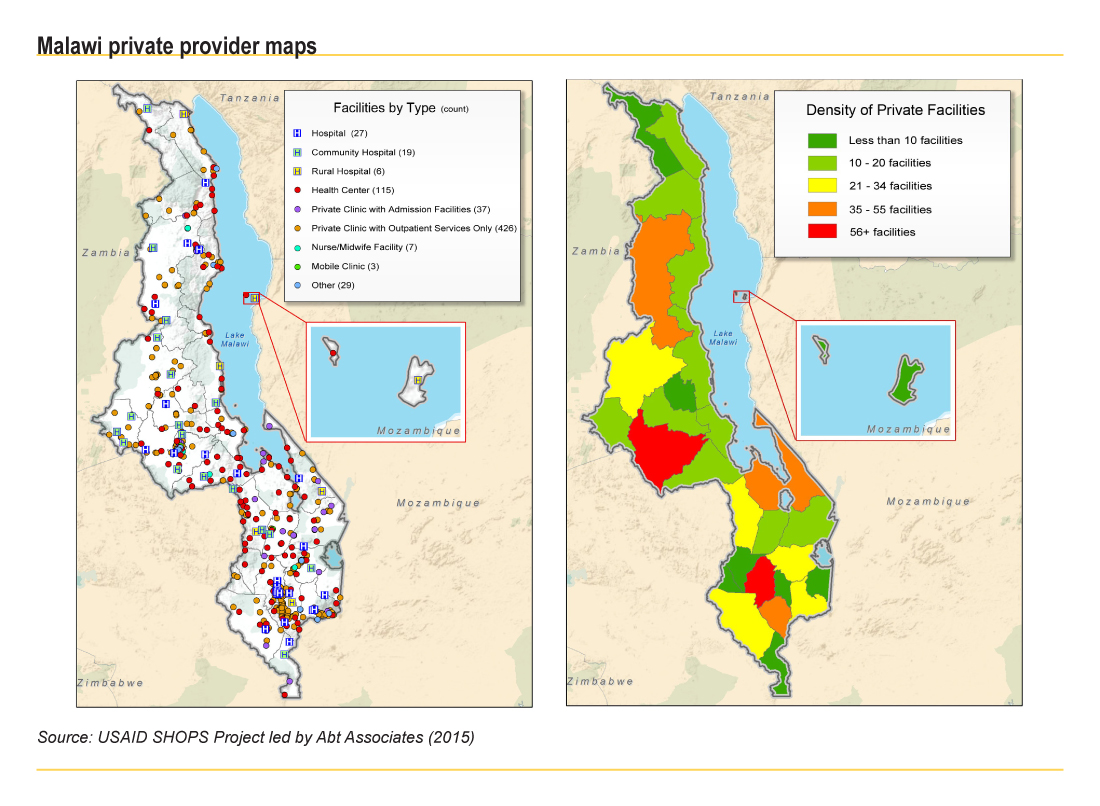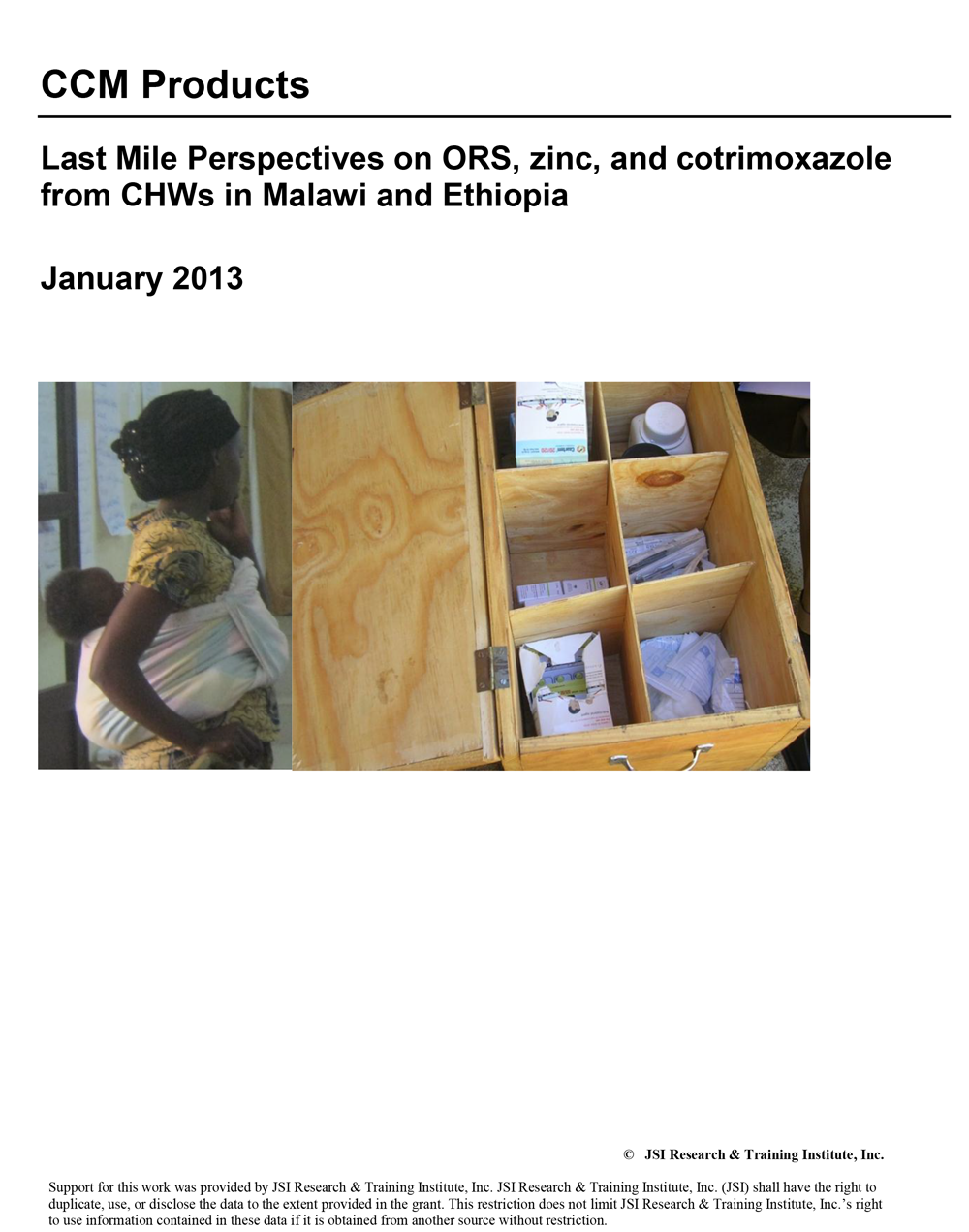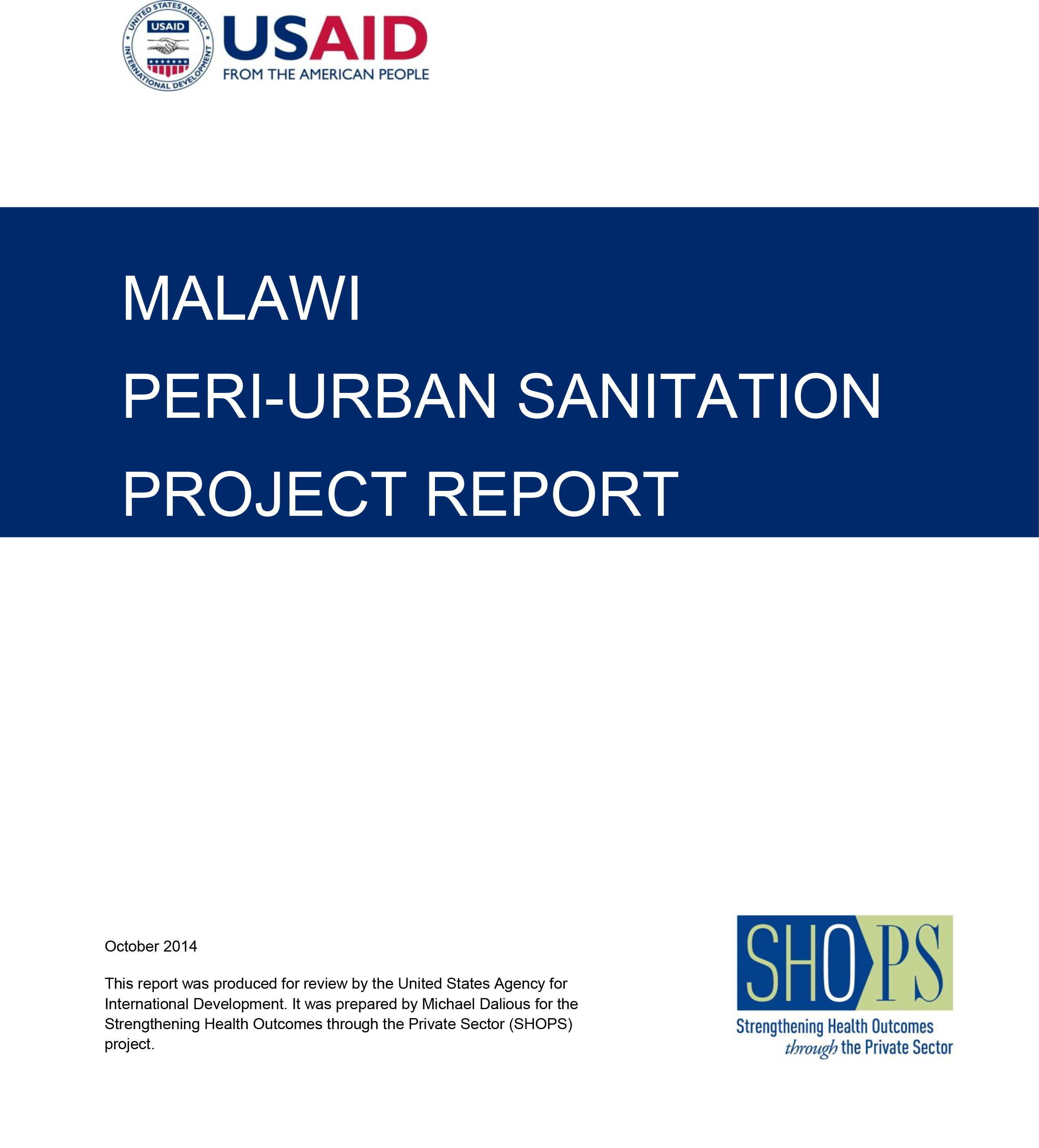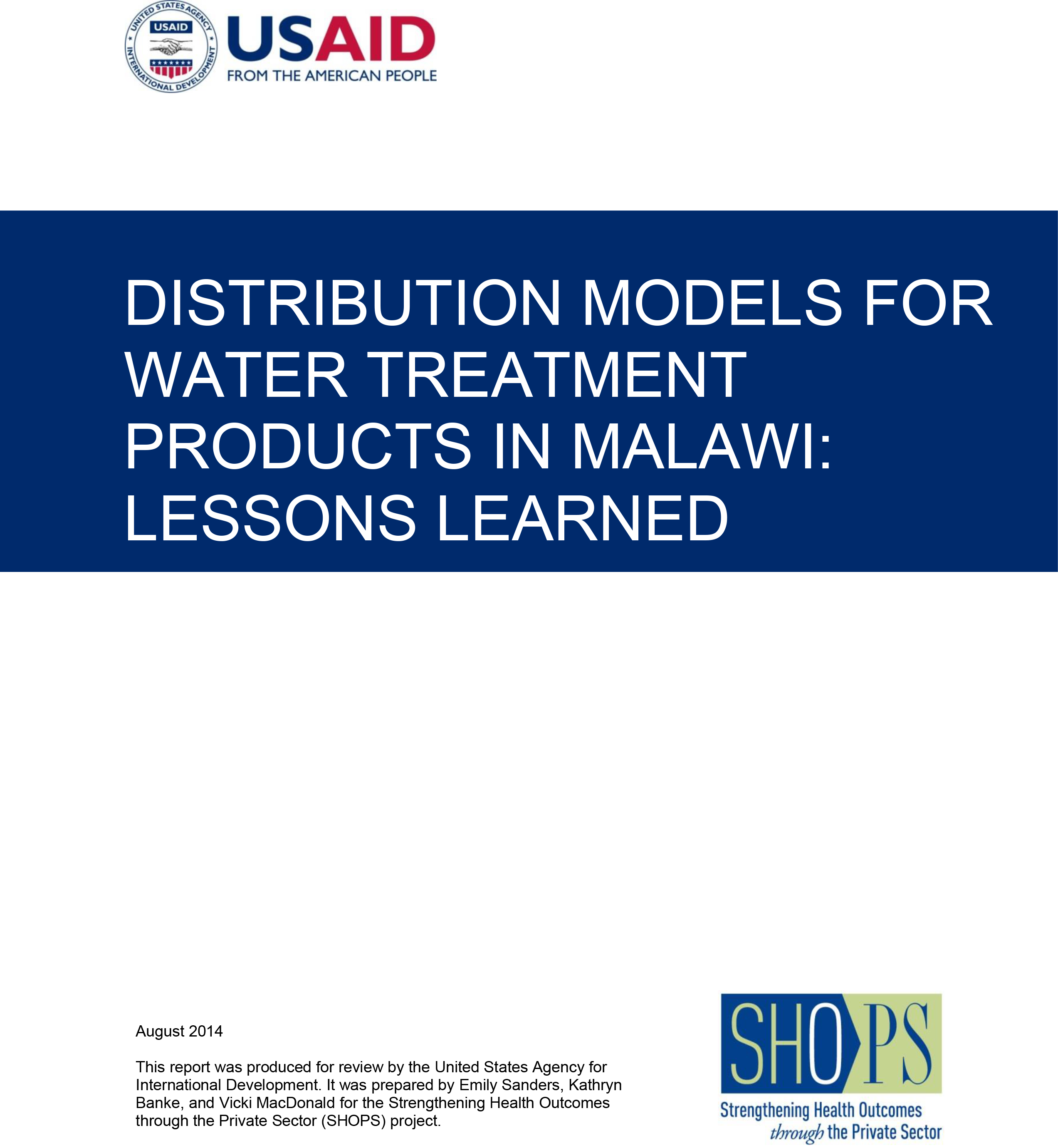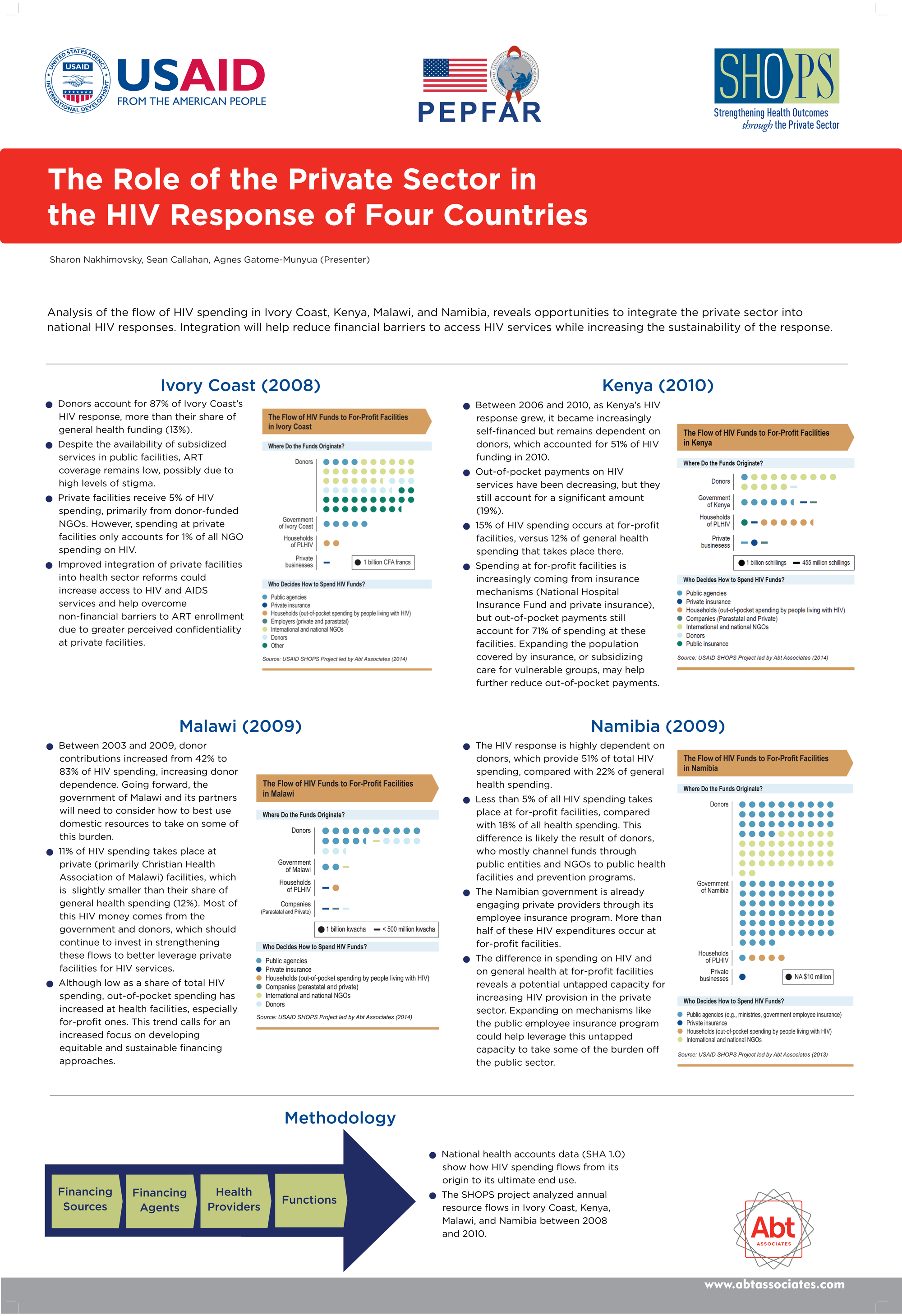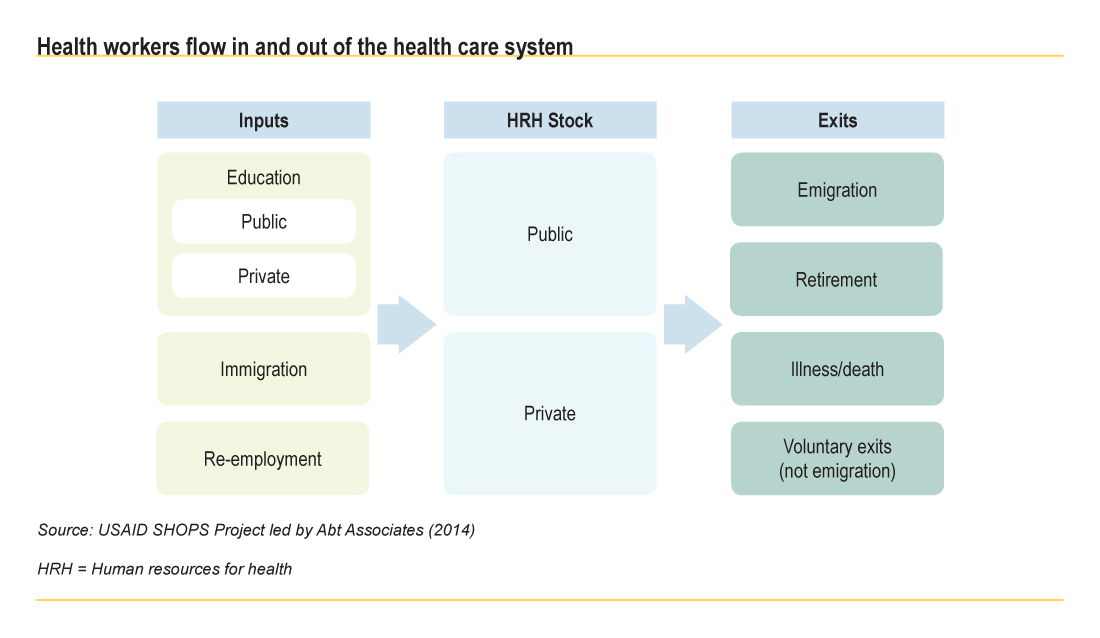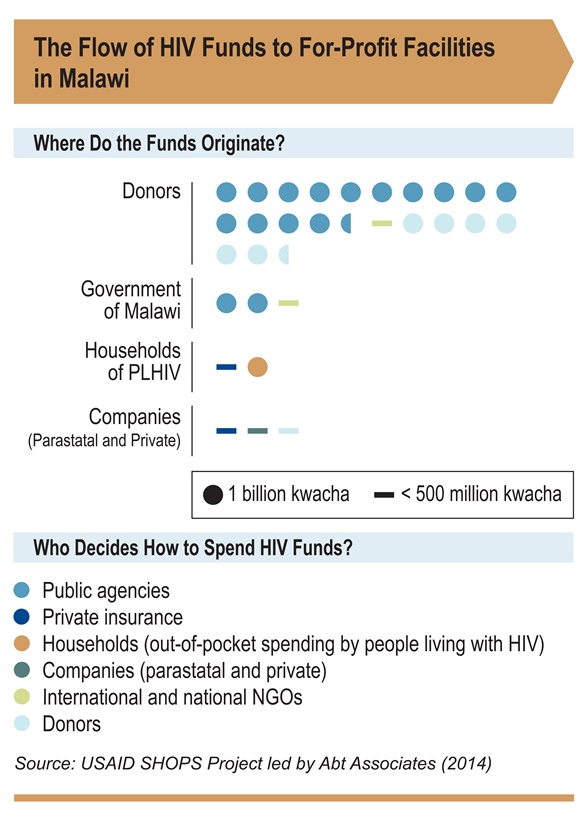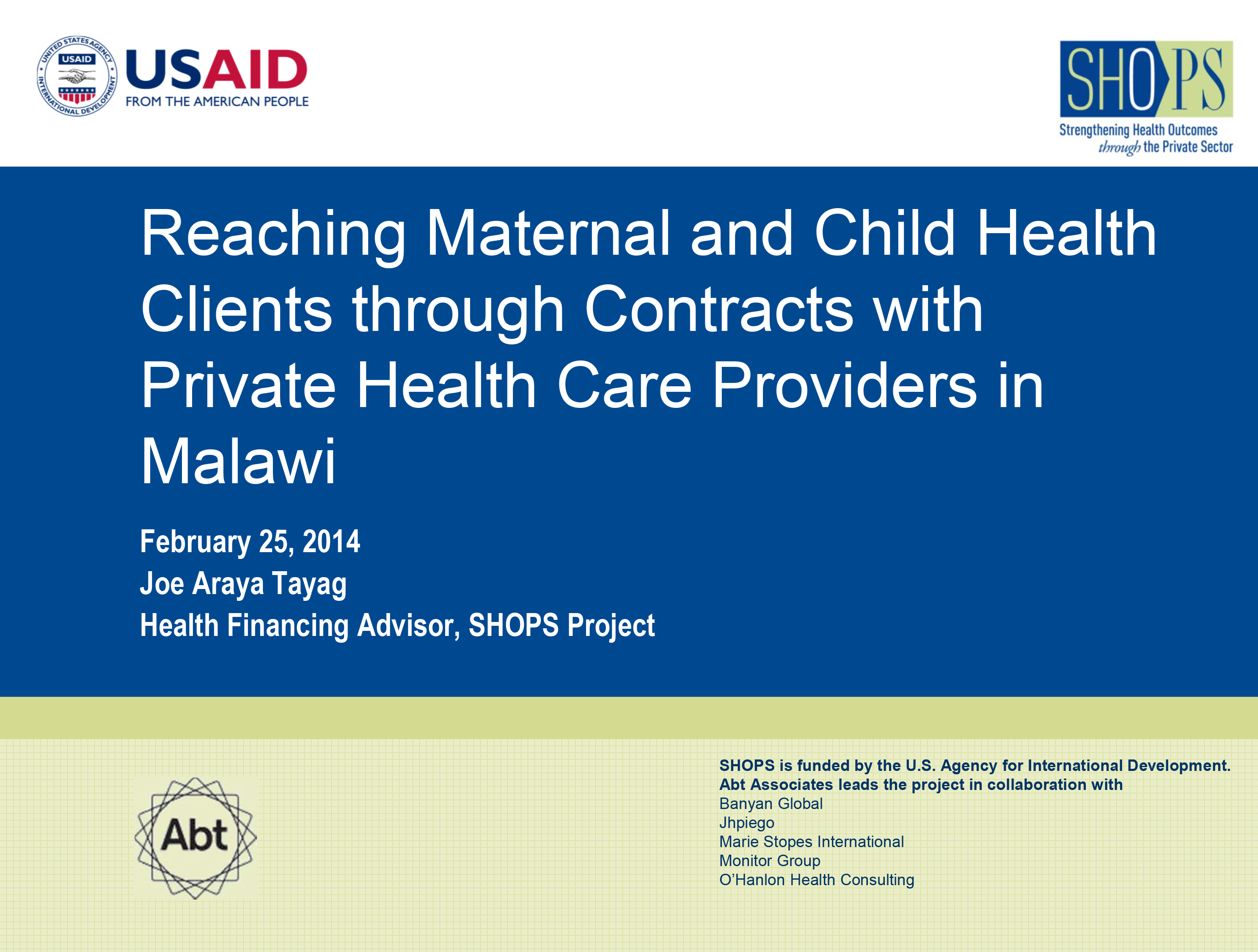
Resource Library
Malawi Program Profile
The Strengthening Health Outcomes through the Private Sector (SHOPS) project implemented a four-year program funded by the United States Agency for International Development (USAID) from January 2012 to September 2015 in Malawi. The program had four overarching goals: improve the enabling environment for the private sector to ensure improved access to quality health care services, strengthen the capacity of nonprofit health facilities to deliver priority services in a sustainable manner; increase the role of the commercial sector in delivering priority health services, and increase the demand for diarrhea prevention and treatment products and services. This profile presents the goals, components, results, and the following lessons learned from the SHOPS program in Malawi.
- The overall health system benefits when the private sector is included in national plans, regulatory frameworks, and training programs.
- Public and private providers can be trained together, efficiently increasing the skills of both, while strengthening linkages between them.
- Commercial providers respond positively to coordination efforts.
- Thinking broadly about private providers taps into a diverse set of stakeholders who can contribute to development goals.
Resource Type :
Country : Malawi
Year : 2015-08-20T00:00:00
Language : English
Project : SHOPS

Resource Library
Last Mile Perspective on ORS, zinc, and cotrimoxazole from CHWs in Malawi and Ethiopia
In September and October 2012, the SC4CCM Project conducted focus group discussions with community health workers who have been providing community case management (CCM) services and treatment to children under five in Malawi and Ethiopia. The purpose of the focus groups was to elicit the community health workers’ opinions on the suitability of the products they had for their environment – both from a supply chain and client perspective. The products of interest included ORS and zinc for the treatment of diarrhea and cotrimoxazole for the treatment of pneumonia. The facilitators asked CHW participants questions to gather feedback related to the products in use, the ease of management and administration, patient and caregiver/mother acceptability, and ideas for product improvement. This report summarizes the opinions from CHWs in both countries, highlighting areas of agreement and where opinions differed.
Resource Type : Brief
Country : Ethiopia, Malawi
Year : 2013-01-01T00:00:00
Language : English
Project : SHOPS

Resource Library
Malawi ORS Case Study
Under five mortality in Malawi has been falling steadily since the mid 1950s (when it was 366 per thousand live births). ORS took off much earlier in Malawi than in other countries so current use rates are much higher. Zinc has only just been introduced into national programs and has limited availabilty in country currently. This study discusses the success of the ORS scale up programs in Malawi, as well as the cost of the program. The study examined the following contectual attributes: product development, training of providers, marketing of ORS, financing scale up, and availability of supplies.
Resource Type :
Country : Malawi
Year : 2012-11-01T00:00:00
Language : English
Project : SHOPS

Resource Library
Malawi Peri-Urban Sanitation Project Report
In 2013, USAID in Malawi tasked the SHOPS project with engaging with the private sector to improve the poor sanitation conditions in peri-urban areas of Malawi. An increasing population density in these areas continues to stress the sanitation infrastructure, which is comprised of mainly shared and traditional latrines. A SHOPS sanitation market assessment in late 2013 identified the cost of currently marketed improved latrines as a major barrier to the transition from unimproved to improved latrines.To encourage residents of peri-urban areas to transition from shared and traditional latrines and increase the market segment for improved latrines, SHOPS initiated an activity, the Malawi Peri-Urban Sanitation project, which aimed to introduce a more affordable improved latrine. This report provides an overview of the activity and its design, lessons learned, and marketing recommendations.
Resource Type : Report
Country : Malawi
Year : 2014-10-20T00:00:00
Language : English
Project : SHOPS

Resource Library
Distribution Models for Water Treatment Products in Malawi: Lessons Learned
In 2012, USAID/Malawi tasked the SHOPS project with documenting the implementation of different models for promoting chlorine-based water treatment products and providing lessons learned and recommendations for scale up. SHOPS identified four different models for water treatment products, either currently in progress or that could be initiated, in four USAID-priority districts of southern Malawi. This report describes the four models, presents data on their coverage, and draws lessons learned about their implementation to inform scale-up efforts. Each of the four models is described in a case study format, using primary data from a household survey on water treatment behavior conducted by SHOPS in June 2013, supplemented with secondary data from monitoring and field reports collected by implementing partners.
Resource Type : Report
Country : Malawi
Year : 2014-08-04T00:00:00
Language : English
Project : SHOPS

Resource Library
The Role of the Private Sector in the HIV Response of Four Countries
This poster presents an anlysis of national health accounts in Ivory Coast, Kenya, Malawi, and Namibia that documents the sources of funding for HIV programs, in particular the contribution of private funding sources. It was presented at the Amref Health Africa International Conference in November 2014 in Nairobi, Kenya.
This poster was also presented at the 2014 African Health Economics and Policy Association conference in Nairobi, Kenya.
Resource Type : Brochure/Postcard
Country : Cote d’Ivoire, Kenya, Malawi, Namibia
Year : 2014-12-08T00:00:00
Language : English
Project : SHOPS

Resource Library
Financing Medical Education through the Private Sector
From 2010 through 2013, the SHOPS project implemented a series of pilot activities to explore the feasibility of introducing private sector health education financing mechanisms. SHOPS explored private sector solutions to help meet ambitious targets from the U.S. President’s Emergency Plan for AIDS Relief for training new health care workers. This report shares the project’s work with private pre-service education financing in Malawi, Rwanda, Tanzania, and Zambia. The authors capture major lessons from these pilot efforts and provide an evidence-based framework that policymakers and donors can use to improve health education financing.
Resource Type : Report
Country : Malawi, Tanzania, Zambia
Year : 2014-12-05T00:00:00
Language : English
Project : SHOPS

Resource Library
Bringing Chlorine Dispensers to Scale in Malawi
This report details the Dispensers for Safe Water program in Malawi. The program uses chlorine dispensers to provide an innovative, low-cost approach to water treatment at the point of collection, with proven sustained rates of adoption much higher than is typically seen with point-of-use water treatment. Evidence Action, a SHOPS partner, ran a small pilot program in Malawi to test the suitability of the Dispensers for Safe Water program for large-scale expansion in Malawi.
This report was prepared by Evidence Action for the SHOPS project in September 2014.
Resource Type : Report
Country : Malawi
Year : 2014-10-03T00:00:00
Language : English
Project : SHOPS

Resource Library
Channeling Funds to Private Providers for HIV Services in Malawi
The SHOPS project analyzed data on past HIV spending to identify ways that donors and the government of Malawi can better leverage the private health sector in the HIV response. Analysis shows a strengthened response to the epidemic, but one that is due to increased donor contributions. Additionally, rising out-of-pocket spending on HIV at for-profit facilities indicates a need for developing equitable and sustainable financing approaches.
Resource Type : Brief
Country : Malawi
Year : 2014-07-17T00:00:00
Language : English
Project : SHOPS

Resource Library
Reaching Maternal and Child Health Clients through Contracts with Private Health Care Providers in Malawi
Joe Tayag, health financing advisor for the SHOPS project, gave this presentation at USAID on February 25, 2014. In the presentation, Tayag describes the costing exercise for 95 services covered by service level agreements and activities that led to nations reform. It concludes with lessons learned on contracting out: its potential, what is required, and the value of a third-party broker.
Resource Type : Presentation
Country : Malawi
Year : 2014-02-26T00:00:00
Language : English
Project : SHOPS
Pagination
- Previous page
- Page 2
- Next page


